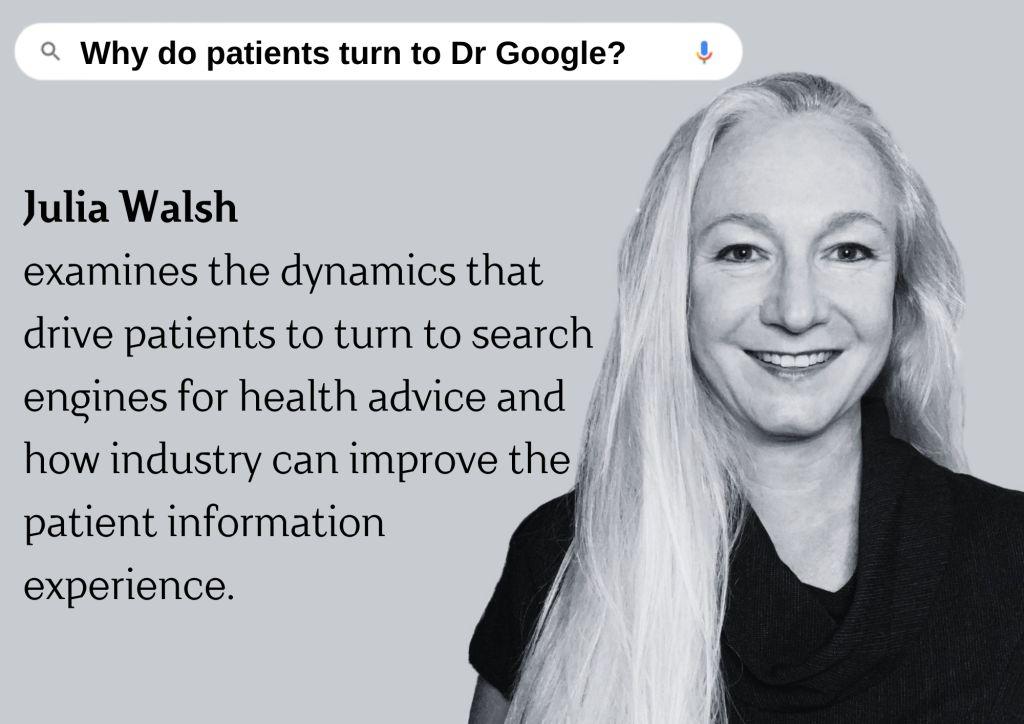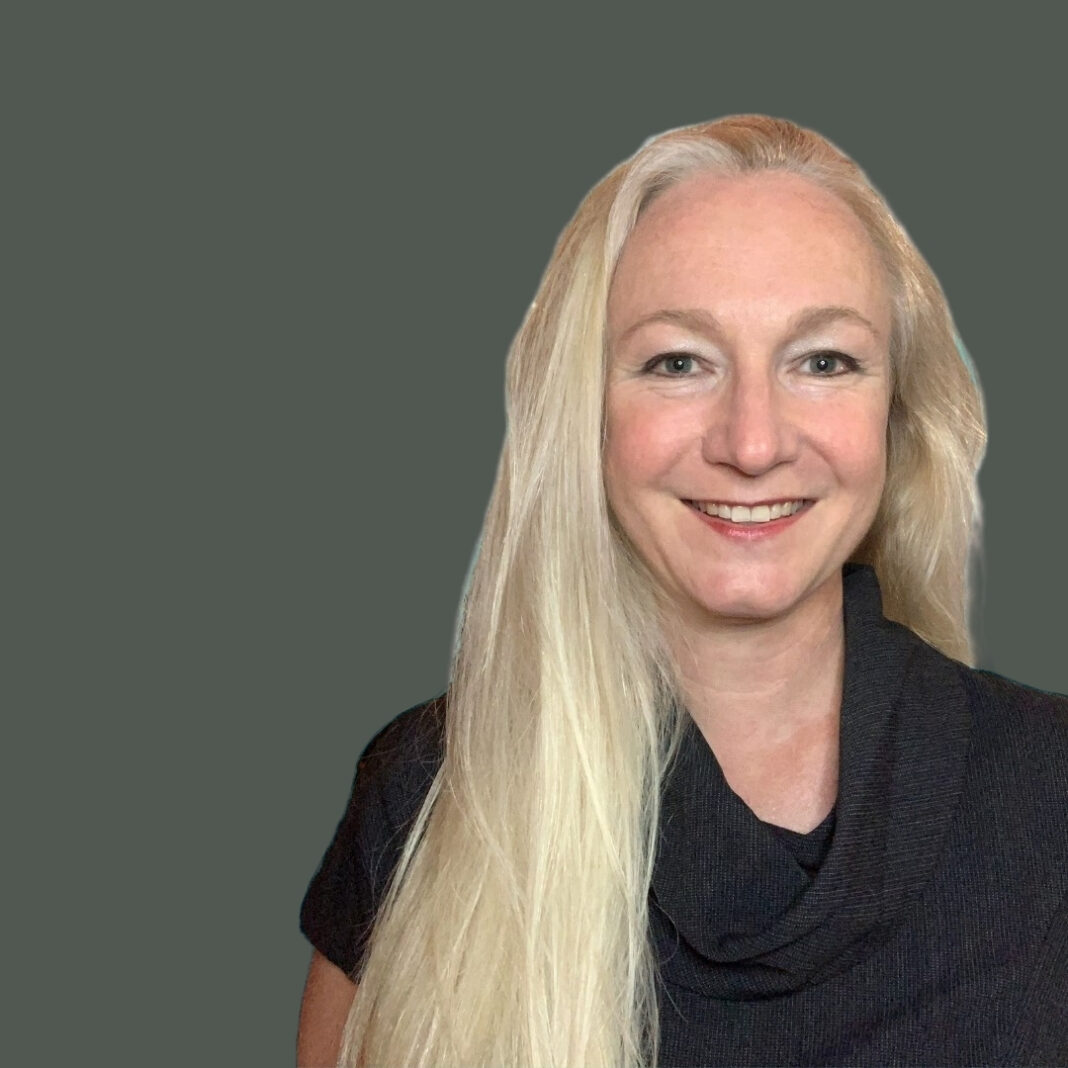I’d like to invite you to reflect on your own experience for a moment…
- Have you, or someone you care for, been advised by a doctor of a serious diagnosis?
- How long was the consultation – did you feel you had adequate time to truly understand the implications of what you just learned?
- How much information were you given to read later to help you really understand the disease?
- Did you turn to the internet to supplement the information you received through official channels?
I am a Search Listening specialist, and I study aggregated anonymised longform search queries for healthcare insights. People turn to ‘Dr Google’ to exchange questions for health advice over one billion times a day. The questions asked reveal extraordinary gaps in our delivery of health information through traditional channels and expose the urgent need to ‘do better’ for patients.
There are a number of reasons why Dr Google is embraced as a key member of a patients’ multidisciplinary team – yet there are also issues with this ‘digital allied health provider’. The good news is there are many things the healthcare industry can do to improve the patient information experience. For this article, I’m going to sharethree reasons why people turn to search engines throughout their patient journey, three reasons why this can cause issues in their disease management and three things we can do to improve our approach to the exchange of healthcare information so that it is more patient-centric. Are you ready? Ok – let’s go:

Why patients turn to Dr Google
- To fill in the gaps
It is not uncommon for a patient to be advised of a diagnosis for something they have never heard of, or, if they have heard of it, never really took time to understand because their optimism bias reassured them that ‘it won’t happen to me’. In that moment of learning of a diagnosis they are often catapulted into a state of shock. In this heightened emotional state, they may not hear what the doctor says from that point forward. And because they frequently leave a consultation with no written information about the disease they have just been diagnosed with,they immediately turn to the internet to find answers to their burning questions.
- Because Dr Google is free, is available around the clock at their fingertips, and never judges.
The questions patients really want to ask are often ones that, even if they had time during a consultation, they might feel embarrassed to ask their healthcare provider – for fear of looking stupid, or of being judged for overreacting. The burning questions they want to know include things like ‘Is diabetes contagious?’ ‘Will high cholesterol kill me?’ ‘Can I still work with MS?’ ‘Can my HIV test be wrong?’. The security of being able to explore every possible concern, privately in their own time, and at no cost is phenomenally reassuring.
- To regain control
The modern patient is an empowered one – the more serious the disease the more engaged they are likely to become in its management. And knowledge is power. Hence searching for answers in between consultations and trying to connect the dots for themselves between symptom, diagnosis and treatment, then hopefully recovery is their way to feel more secure on this journey into the unknown. They seek to understand what is at stake right away ‘Will melanoma kill me?’ ‘Can I still have a baby with cervical cancer?’
Why Dr Google can be disruptive to the patient journey
- People google one symptom at a time
Dr Google is not a doctor – yet we all frequently search fora diagnosis based on symptoms at the first sign of them (‘Why does my vision come and go?) – and this is where the concept of prodome is important – the cluster of symptoms that indicate the onset of a disease or illness. When a patient searches for one symptom at a time, it can delay a diagnosis by years. Astudy published in the Journal of Oncology Practice reviewed anonymized Bing search logs of people whose queries provided strong evidence they had recently been diagnosed with pancreatic cancer (e.g. ‘I have just been diagnosed with pancreatic cancer’). The retrospective analysis of their search logs revealed they had looked for information on symptoms of the disease over many months prior (‘yellowing skin’, ‘back pain’, ‘indigestion’, ‘abdominal pain’)– time lost between these search queries and the ultimate diagnosis that meant this deadly and fast-spreading cancer was potentially caught too late to cure.
- Stories eclipse data
Patients seeking information online frequently gravitate towards accounts by other patients with the same condition and overlay their own personal situation with that of the blogger or vlogger – despite the fact they have no idea if their experience of the condition is relatable with this digital ‘authority’. This leaves patients with no health literacy being schooled on a disease or treatment by people with no health credentials. A provocatively told story by one patient can easily have more influence than the published conclusion of a clinical trial based on N=15,000.
- Search engines bias towards side effects
Enter the name of a medication you are taking, or something you work on, into Bing – you will see that the bar to navigate through information about a product is organised, left to right, as follows:
[Brand name] Side Effects; Warnings; Interactions; Dosage; Coupons;Indications; Precautions etc
What the medication is actually used for(i.e. why it has been prescribed) is the SIXTH item in the sequence. Furthermore, the word ‘indications’ is not necessarily understood by all patients (which is why the language used in many Consumer Medical Information inserts is simply ‘What is it used for’). This approach to the online presentation of information about prescription treatments has high potential to inadvertently drive primary non-adherence – because people are being influenced by the negatives first. Even patients with healthcare training, once they have worked through Side Effects, Warnings, and Interactions might be influenced to make what seems like a solid decision to NEVER TAKE THE MEDICATION. In many cases, for silent diseases like high blood pressure, or high cholesterol where the risk of health consequences from the disease may feel theoretical to a patient who can’t see or quantify the ‘disease’, not taking what appears to be a ‘dangerous’ medication with a litany of risks might feel like the best thing they can do for their health – when it is quite the opposite.
Ways we can improve the exchange of healthcare information to improve patient outcomes
- Know that they need to know.
Offer patients more information during a consultation or when a medication is dispensed to comprehensively educate them on their newly diagnosed condition and the associated treatment. Accept that they will be thirsty for information, and if printed material is not available, give them the actual website address for where to seek education on their condition. A QR code link is even better – less detours into digital rabbit-holes filled with frightening misinformation.
- Know what they need to know.
Often the questions people have about a condition are not what we assumed they will ask. Search Listening acts as a digital truth serum to reveal their true concerns – even the most private ones (‘is it normal to cry every day’, ‘will scoliosis affect my sex life’). It is only through listening to real-world, longform search queries that we can truly meet their informational needs with content that turns up where and when they need it and, importantly, resonates with them.
- Keep listening
As a category is influenced by outside events (a new treatment, or a product recall) stakeholders will immediately turn to the internet for information. Search data will evolve as new questions emerge; it is a living dataset that reflects our collective consciousness and reveals the evolving online narrative of a category. This influences the offline narrative and real-world behaviour, so knowing key search activity dynamics is fundamental to truly understanding a category.
In Summary
Improving the exchange of healthcare information all starts with acknowledging the empowered patient ……their thirst for knowledge, and their need for clarity around consequences and hope. In the absence of patient-friendly evidence-based health advice from a healthcare professional, patients are left to wade through terabytes of information trying to seek answers to their questions(‘What happens after my stroke?’). But we can help them – Search Listening Optimisation (#SLO) enables us to turn up with evidence-based content where and when patients need it – and take steps to achieve the ultimate goal to #CleanUpTheInternetForPatients.
Always listening, Julia Walsh
About the author
Julia Walsh, founder and CEO of Brand Medicine International, is a Search Listening specialist in healthcare. She has pioneered a methodology that taps into aggregated, anonymised search data to accompany patients as they undertake their private consultations with Dr Google, mapping the patient information experience (or PiX) across all stages of the patient journey. This pioneering approach to leverage Search Data for strategic insights empowers the healthcare industry to pivot from a brand-centric approach to a truly patient-centric approach for the development and deployment of health information.



















